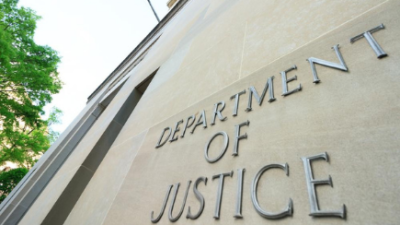Legal System
A just and fair legal immigration system upholds due process and adherence to the rule of law, while effectively managing immigration. Our efforts work to uphold the best version of the system, holding government entities accountable for fairly enforcing policies and addressing injustices at all levels of government.
What does the constitution say about due process?
The Fifth Amendment to the Constitution says clearly that no person shall be deprived of life, liberty, or property without the due process of law. Note that this says person, not citizen, and over the years the Supreme Court has consistently ruled that the Due Process Clause applies to all people in the United States.Do non-citizens have the right to due process in the U.S.?
Yes. The Constitution guarantees due process rights to all "persons," not just citizens. This means non-citizens, including undocumented immigrants, are entitled to fair treatment under the law. This includes the right to defend themselves in court. But recent Trump administration policies that speed up deportations and limit access to legal representation make it harder for non-citizens to get their fair day in court.- Access to legal representation Access to legal counsel is an essential part of our justice system and our democracy. In the criminal justice system, anyone facing even one day in jail gets a lawyer if they can't afford one. But immigrants facing deportation usually don't get that chance.The research is clear – the most effective way to ensure some level of due process for people navigating our complicated immigration system is for them to have trained attorney at their side. But Trump administration is now working to strip attorneys from as many people as possible, all in the name of increasing its deportation numbers. This attempt to eliminate basic due process will hurt people who already have few options.
- Fair day in court Due process guarantees that individuals have the opportunity to defend themselves in court. This includes non-citizens facing deportation.
Why is due process important?
We are seeing right now the importance of due process when it comes to President Trump's actions to carry out the so-called Alien Enemies Act, a 1798 wartime law that permits people to be deported outside of the normal framework of immigration law. President Trump has alleged that this law allows him to simply point at any person, declare them to be an alien enemy, and kick them out of the country without ever having a chance to see a judge. Thankfully, the Supreme Court said that is not true, and in a unanimous decision, ruled that people can challenge the Trump administration's invocation of the Alien Enemies Act. That is why due process is so important, because it means that no person can be rounded up and sent to another country without a chance to go to court and make the government prove their case.How is the American Immigration Council working to protect due process?
- We serve thousands of individuals in immigration detention centers through the Immigration Justice Campaign, our initiative with the American Immigration Lawyers Association. The Justice Campaign provides free legal services for immigrants who would otherwise have to navigate our complicated immigration system without a lawyer.
- We use the courts to demand a fair process for immigrants. Our litigation team is fighting back against the Trump administration’s blatant disregard for due process including filing a lawsuit challenging their illegal detention of immigrants in El Salvador’s notorious Terrorism Confinement Center (CECOT).

Amicus Brief Argues that Exclusionary Rule in Criminal Proceedings Should Apply to Evidence Related to Identity in Prosecutions for Illegal Reentry
In the amicus brief filed with the Third Circuit Court of Appeals, the Council argues that the exclusionary rule in criminal proceedings should apply to evidence related to identity, because it is an essential deterrent to ICE’s widespread racially discriminatory enforcement practices. Read More

Investigating the Immigration Court System
This Freedom of Information Act (FOIA) request seeks to uncover information about the hiring process for the position of Assistant Chief Immigration Judge (ACIJ) and the influence of these judges over the immigration courts. Read More

How Would Biden’s Supreme Court Nominee Handle Immigration Cases?
President Biden has nominated Judge Ketanji Brown Jackson to replace retiring Justice Stephen Breyer on the United States Supreme Court. With nearly a decade as a federal judge, Judge Jackson’s record may provide some clues about how she would handle immigration cases as a Supreme Court Justice. Immigration law… Read More

The Board of Immigration Appeals Will Now Provide the Public with Access to Its Unpublished Decisions
Immigrants and their representatives will gain access to decisions of the Board of Immigration Appeals (BIA) that were not publicly available. As a result of a settlement of a lawsuit filed by the Public Citizen Litigation Group on behalf of New York Legal Assistance Group, the BIA has agreed… Read More

Immigration Court Comes Into the 21st Century with Electronic Filing for Attorneys
Immigration courts will soon take a big step into the digital age. On February 11, 2022, immigration attorneys, accredited representatives, and Department of Homeland Security (DHS) lawyers, will be required to electronically file immigration court paperwork in new immigration cases. This update won’t make the immigration court system fully paperless. Read More

New Report Amplifies Concerns About ‘Dedicated Docket’ for Asylum Seekers
When the Biden administration announced a new “dedicated docket” in immigration court for families seeking asylum at the border, many advocates raised concerns that the docket would forgo due process for efficiency’s sake. This was the case for the “rocket dockets” that existed under President Obama, which suffered from… Read More

Seeking Records About Possible Due Process Violations of Detainees at the Torrance Detention Facility
These Freedom of Information Act (FOIA) requests seek records from U.S. Immigration and Customs Enforcement (ICE) and the Executive Office for Immigration Review (EOIR) about treatment of Haitian immigrants. Read More

New Memo to Immigration Judges Reaffirms Availability of Administrative Closure
The Executive Office for Immigration Review (EOIR) issued a memorandum last month providing guidance to immigration judges about administrative closure—a critical tool for docket management and addressing an ever-growing immigration court backlog. EOIR Director David Neal issued the memo in response to the recent Attorney General decision in Matter… Read More

Coalition calls on Congress to Fund Appointed Counsel in Immigration Proceedings
The American Immigration Council joined a coalition letter asking Congress to support funding for appointed counsel for immigration proceedings for Fiscal Year 2022. Read More

Department Of Justice Urges Immigration Courts to Help Make Pro Bono Representation Easier
Research has long shown that access to a lawyer is one of the most important factors that determines whether an immigrant in removal proceedings will be able to remain in the United States. A new policy from the Biden administration is aimed to increase access to counsel by making… Read More
Make a contribution
Make a direct impact on the lives of immigrants.
